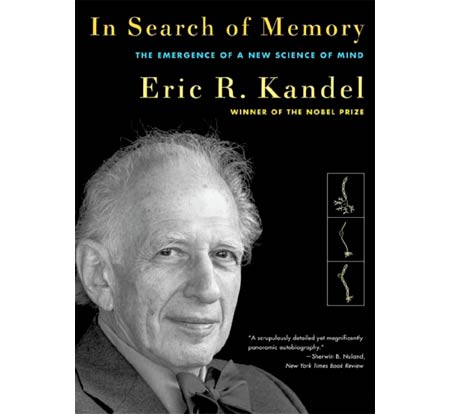In Search of Memory by Eric R. Kandel
February 5, 2008
I’ve been fascinated by memory since, oh, I can’t remember when. One of the best books on the subject I’ve ever read was Daniel Schacter’s Searching for Memory: The Brain, the Mind, and the Past from 1997. I would still recommend that book as a great place to start exploring this field. The sad truth is that the primary way in which researchers learn about memory is by studying people who for various reasons have memory deficits. Their personal stories can be heartbreaking, aside from the scientific information we can glean from their tragic situations.
Now, a decade later there’s another phenomenal book that deals with the discovery of the molecular basis for memory by Eric Kandel, In Search of Memory. Everything that make you, YOU is tied into memory: personality, emotions, skills, our likes and dislikes. Without that continuous chain of memory that stretches back to our infancy how could we know who we are, what we are capable of?
And don’t be afraid that this is one dense slog through a lot of mind-numbing statistics, experiments and discoveries. Kandel’s book is filled with hot sex, Hollywood orgies, porn stars, suburban exhibitionism and perverse, though intriguing, variations on intercourse.
OK, that last part I made up.
But don’t let the lack of sensationalism deter you. This is essential reading if you want to know how your mind works.
Kandel, who received the Nobel Prize in 2000, traces advances in understanding learning and memory. His own groundbreaking findings showed that learning produces changes in behavior by modifying the strength of connections between nerve cells. He conveys his immense grasp of the science beautifully, but it is his personal recollections that make the book especially compelling. He begins with his searing childhood memories of the German annexation of Austria and his family’s escape to the U.S. when he was nine. And he ends with a conference he organized in Vienna to examine the strange reluctance of Austria (unlike Germany) to acknowledge its role in the Holocaust. One comes away in awe of the scientific advances—and of a life well and fully lived.
–from Scientific American
Comments
Got something to say?
You must be logged in to post a comment.

